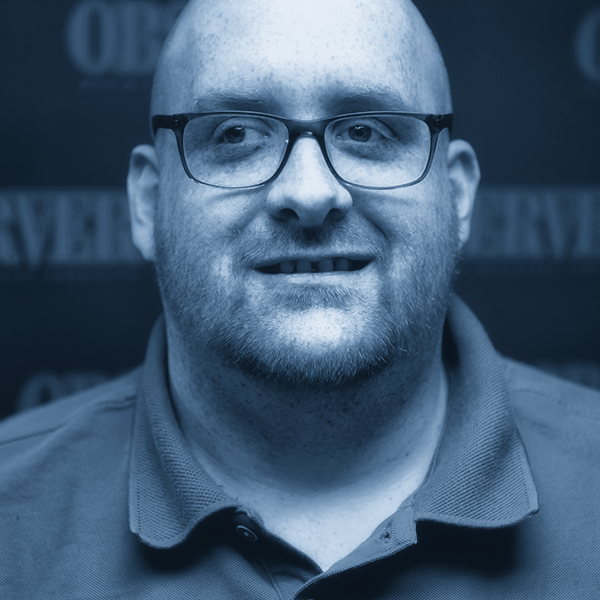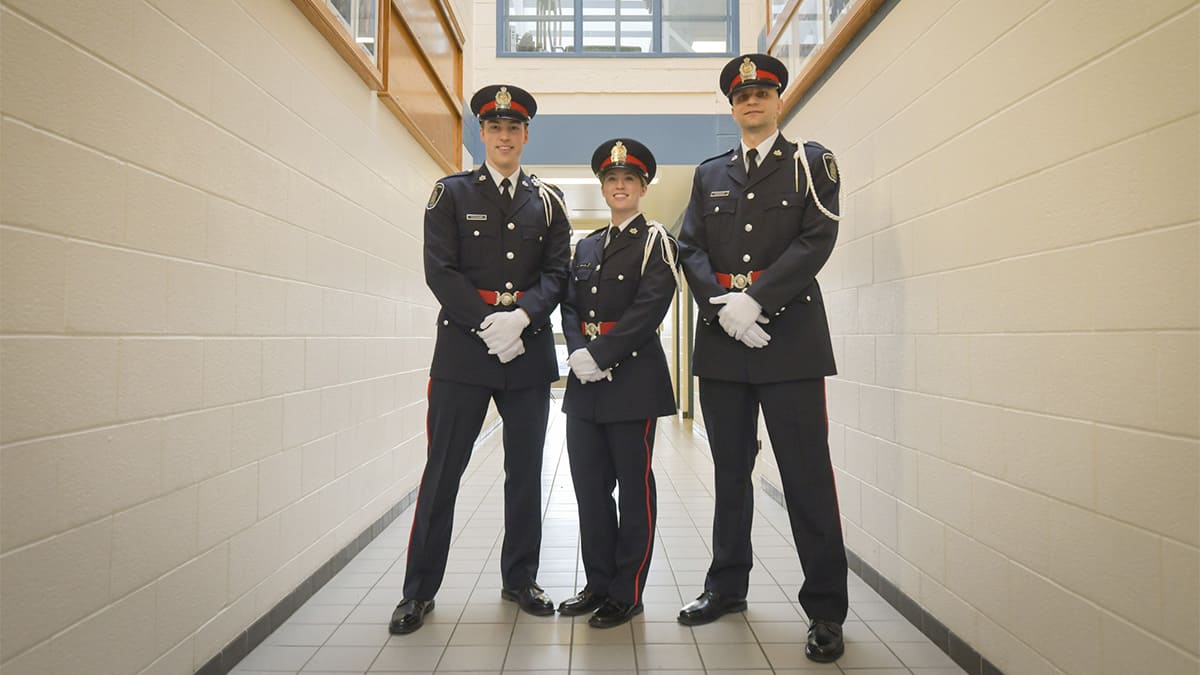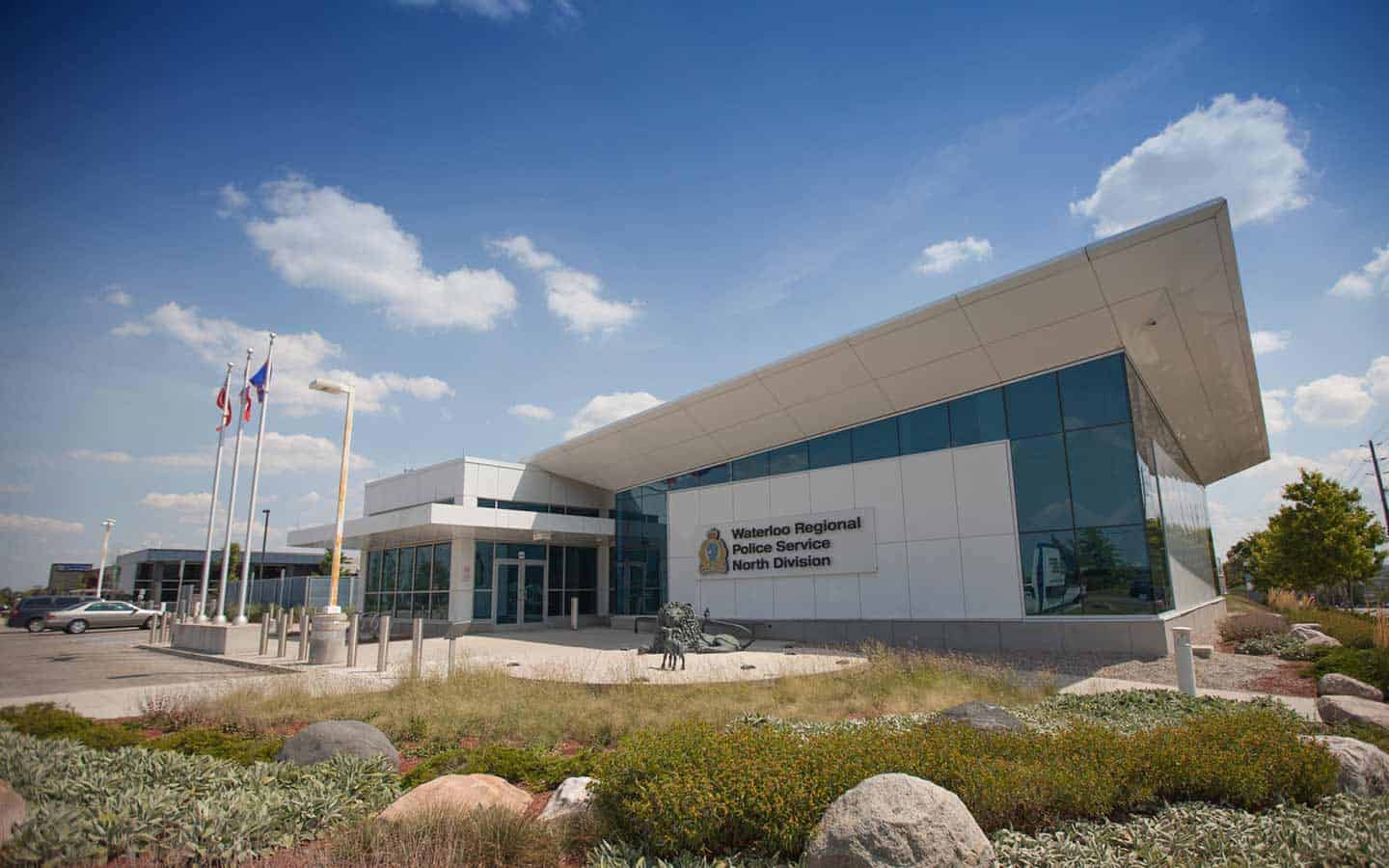Plans to provide Waterloo Regional Police with an additional $12.3 million have some groups saying the mental-health funding would be better spent elsewhere.
“Overall, I’m glad that mental health crises are on the radar more often for these types of discussions, but I’m disappointed that this feels like it’s an expansion of policing, as opposed to support that might actually prevent or better support individuals experiencing such a crisis,” said community activist Melissa Bowman of the recent funding announcement by the province.
The bulk of the money ($9.3 million) will be going to a crisis call diversion centre as an expansion to the Integrated Mobile Police and Crisis Team (IMPACT). IMPACT currently sees a frontline WRPS officer and someone from the Canadian Mental Health Association (CMHA) respond to calls. This program runs 20 hours a day, seven days a week.
The new call centre would have CMHA workers in the communications centre to triage calls.
“This would allow for calls related to mental health to be triaged through CMHA instead of generating a typical police response,” said WRPS public information officer Cst. Melissa Quarrie in an emailed statement.
At the time of the announcement, Chief Bryan Larkin stated that the call centre would “ensure further proactive upstreaming for those who require collaborative community support.”
Not everyone was convinced, however.
“It’s not my understanding of what proactive and upstream is at all. To me, this approach is just being on the reactive end of things, and not looking at what investments could we put in place that would better support individuals,” she said.
Judah Oudshoorn of Relocate Waterloo said more crisis response is needed, arguing that it should be non-police related, however.
“We need folks who are mental health workers, essentially people who have expertise in that area, to be able to respond to those calls. So now those types of programs don’t currently exist. What we actually need is some imagination, we need some creativity, we need some courage in this region for people to be able to develop that,” he said.
Oudshoorn pointed to police-free models in the United States, including Eugene, Oregon’s CAHOOTS (Crisis Assistance Helping Out On The Streets), which was founded in 1989. CAHOOTS teams up a paramedic with a crisis worker who has significant training in the mental health field.
“CAHOOTS staff are not law enforcement officers and do not carry weapons; their training and experience are the tools they use to ensure a non-violent resolution of crisis situations,” their website states.
According to documents from the Eugene government, the program received five to eight per cent of calls diverted from police in 2019. It had at least some level of involvement in 20,746 dispatch calls that year, while it had to receive police backup in 311 cases.
“The community could do a tremendous amount with that funding if we were able to start a program that actually refers calls to a community mental health option,” Oudshoorn said.
Jennifer Lavoie is a professor in the criminology and psychology departments at Wilfrid Laurier University whose research specialises in police response to mental health calls.
While Lavoie said that she supports the new call diversion centre she is of the opinion that there are many calls that currently go to police that require more of a non-police approach.
“The reason why the police service gets so many calls for mental health crises is because there’s no one or nowhere else to call. Police are a 24-hour, seven-day-a-week service. When people need help, they call the police because we do not have a mental health emergency crisis service in our province. There is no one else to call other than the police. Unless a family can convince their loved one or that person goes to the ER to get services, that’s it. Those are basically our options. So people call the police out of necessity,” Lavoie said.
She added that there are times when police response is needed, such as when dispatchers determine there is a question of safety.
“If there is in fact a safety element at play…then it might make sense to send a police officer to the scene in order to assist. There’s also the issue that the only people in the province who have the authority to apprehend under Section 17 of the Mental Health Act is a police officer.”
That said, Ontario police officers are not well trained in crisis response, Lavoie noted.
“I believe all frontline officers should absolutely be trained in specialized mental health responding in particular de-escalation techniques. The research bears that out quite well but officers still feel pretty uncertain when they go to these kinds of calls. And when you have an uncertain officer responding to a mental health crisis call, that really increases the likelihood of use of force,” said Lavoie who is currently working with other experts to develop training.
Quarrie did not state what level of crisis response training WRPS offices currently get, nor did she say if they would receive more as a result of the new funding.
Oudshoorn doesn’t see a place for police responding to mental health calls even if they receive more training.
“All we’ve ever done in the history of policing is argue that what we need to do is improve their training and improving training has never improved results,” he said.
Lavoie said she can understand the concern of just giving more money to police given the complex relationship between the mental health community and police, noting we need to remember the complexities and nuances in these situations.
“It’s so easy to say ‘defund the police’ or why are we giving more money to the police or ‘erase police from these kinds of situations,’ but there’s actually layers and layers of complexity that we need to consider as a community with respect to the kinds of services that a person may require. We can’t gloss over things – we really need to dig a lot deeper on this issue,” she said.









